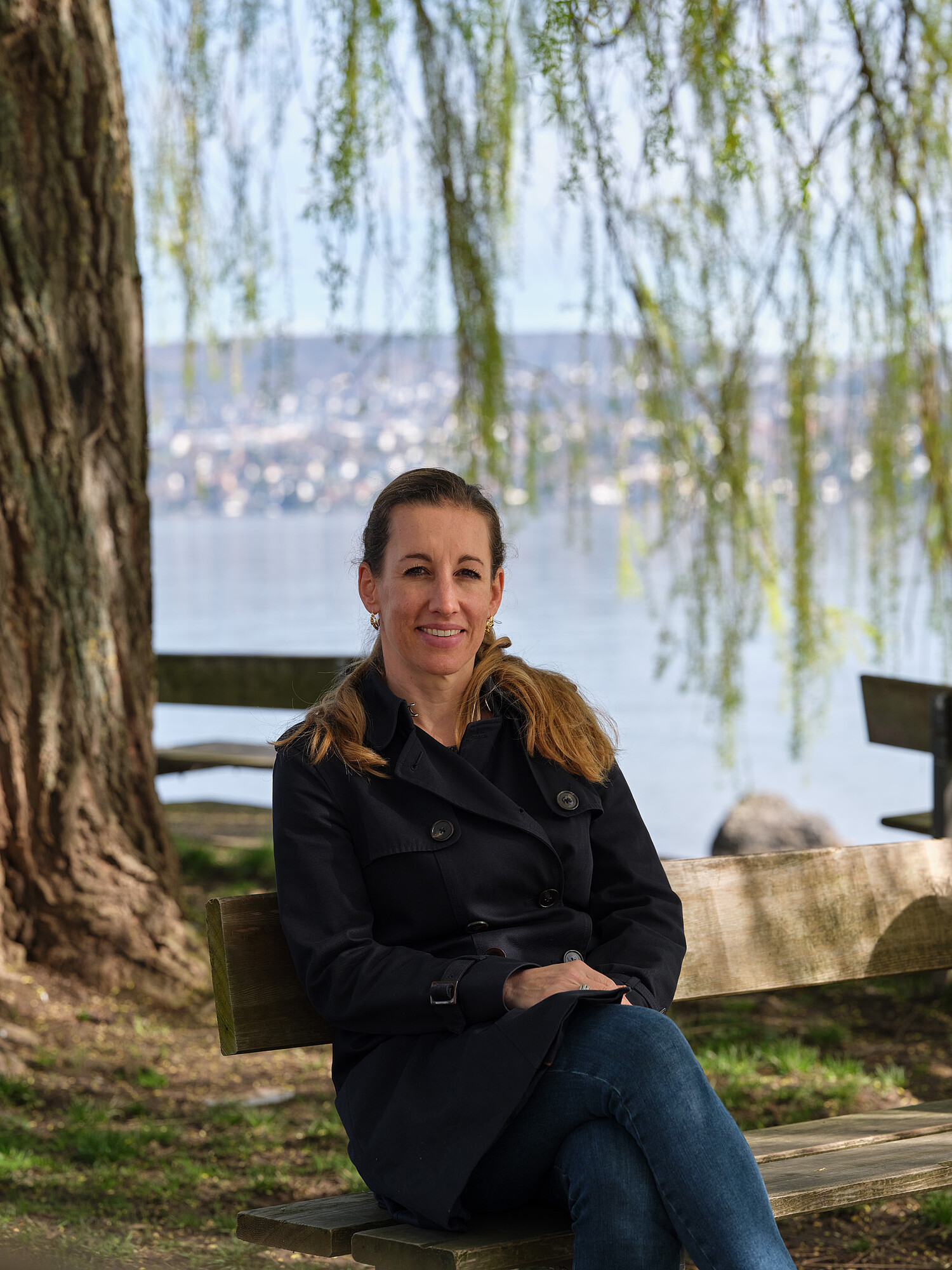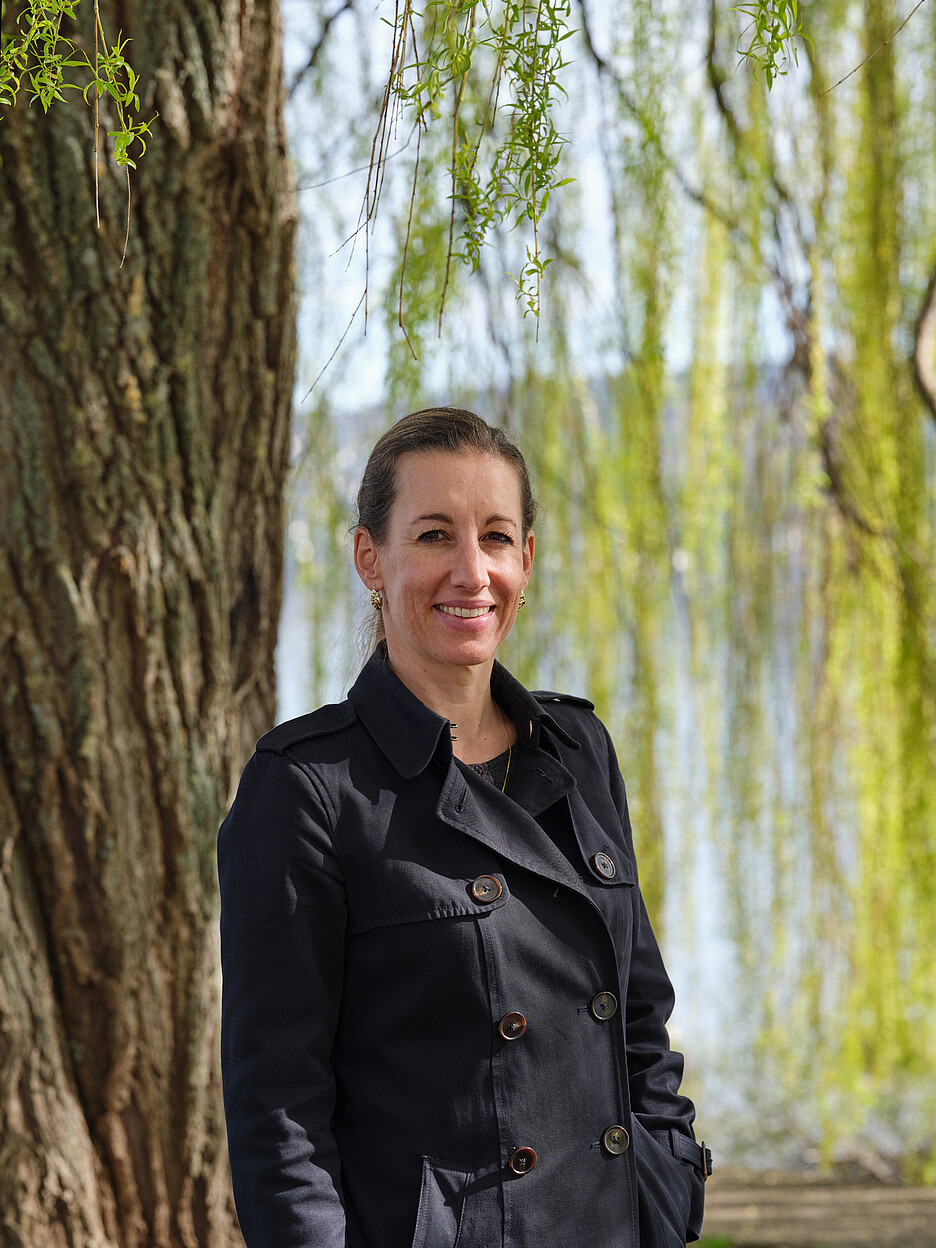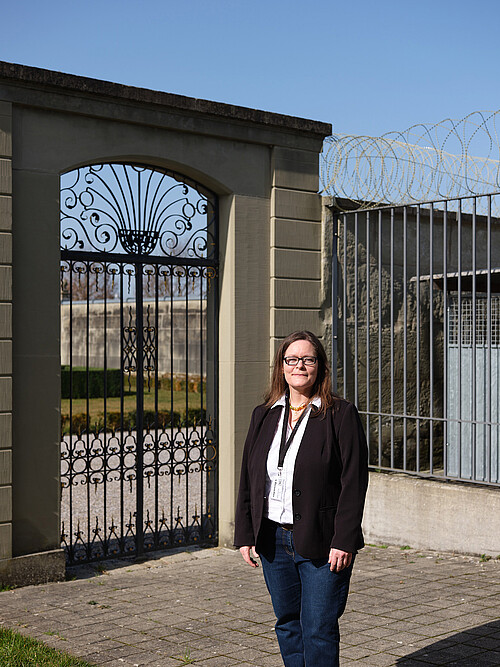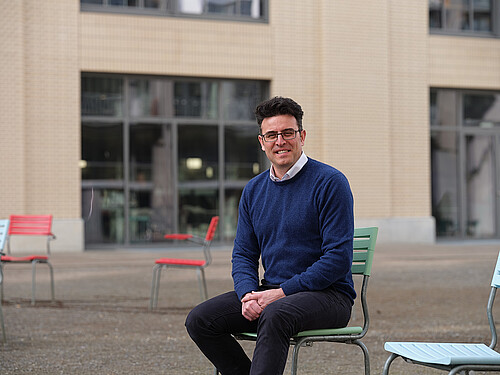
“Here, you can research for practice”
Making the financial world more sustainable: Julia Meyer is actively working to achieve this goal – and has probably been doing so for longer than many other experts in the world of finance. With her research, the Professor of Sustainable Finance wants to gain a better understanding of how sustainability-related information influences financial decision-making.
When Julia Mayer started out looking at the topic of sustainability in the financial sector, hardly anybody wanted to hear about it. Today, approximately 15 years later, things look completely different. At every academic conference, a large number of the presentations held will address the issue of sustainable finance in one way or another. Investors want to know just how sustainable the products and companies are in which they are considering investing their money, while banks are required to provide their client advisors with sustainability training. A national standard is soon to be introduced that will define what is actually meant by a sustainable financial product. For Julia Meyer, this is a sign that Switzerland is heading in the right direction when it comes to sustainable finance. The Professor of Sustainable Finance at the ZHAW School of Management and Law is convinced that “once this new standard is in place, there will be a greater number of sustainable financial products that meet client expectations better than the current ones do.” The 41-year-old, who was recently appointed professor, teaches and researches at the Center for Corporate Performance and Sustainable Financing.
Throwing yourself into research
According to Meyer, it is currently unclear how the sustainability of companies and products in the financial sector can be reliably measured. While there are various sustainability ratings, they all measure different things. “Certain ratings, for example, focus on measuring whether a company is equipped to deal with any potential environmental risks and would be able to bear the consequences financially. Investors, meanwhile, may understand a good rating to mean that the company is actively committed to sustainability issues and that they can do something good by investing in the company in question,” explains Meyer. This would be a misunderstanding of the situation and also entails the risk that providers of sustainable investment products may be accused of greenwashing.

In her current research, the expert in sustainable finance is therefore investigating how sustainability-related information is used and what investors, as well as other financial market players such as banks and funds, understand by sustainability in detail. Her research is intended to show the extent to which this understanding corresponds to the available ratings in both an environmental and social sense. Her research project “The Anatomy of Sustainability” is being backed financially by the Schwyzer-Winiker Foundation. “I am looking forward to dedicating more time to research again,” says the busy professor.
Putting knowledge into practice
Meyer has recently invested a great deal of time into developing various teaching products on the topic. On the one hand, in the university environment and, on the other hand, in real-life situations with financial institutions. After completing her dissertation on microfinance and impact investing at the University of Zurich in 2013, she helped to establish a CAS course in sustainable finance there, which quickly became very popular. Since joining the ZHAW in 2020, she has also developed a corresponding continuing education programme as well as courses for those working in this field. Together with her team, she has put together training courses for bank advisors that she implements herself. In a combination of self-study videos and on-site training, the advisors learn how they can incorporate the topic of sustainability into their work when examining products and, above all, when advising clients.
“Once this new standard is in place, there will be a greater number of sustainable financial products that meet client expectations.”
“I really enjoy these training courses. We also look at the products offered by the specific bank on site, and this gives rise to interesting discussions. The participants sometimes ask critical questions and describe the challenges they face in practice. This is extremely informative for us and the input serves as inspiration for current and future research projects,” says Meyer. Unlike in the optional modules held at the university, these courses are often also attended be people who actually have no interest in the subject. “While this often proves challenging, I think it is completely OK. I don't believe that every bank has to be completely green from the very outset. You simply have to be familiar with the subject, there are no two ways about it.” Ultimately, a lot depends on the advisor in question. Those who are interested in the topic show great enthusiasm during the training and leave the session with added motivation. For Meyer, it is important to emphasise the following: “It is a complicated area that is still subject to great change and evolves at a rapid pace. You can’t know everything about it. Not even as a bank advisor.”
Many questions, great dynamism
It is precisely this dynamism and the constant, rapid change in the subject area that Meyer draws her inspiration from. “So much remains unclear. From a research perspective, it is extremely exciting, as there are still so many topics to be explored due to the large number of questions that are yet to be answered.” Sometimes, says Meyer, this can also be challenging, especially during teaching. She smiles and says: “Every now and then I wish I was a maths professor and I could simply explain a formula and say that’s how it is. And it will stay this way too.” In this field, however, it is simply impossible to pull out the documents used in the previous semester for the current one. “The teaching content has to reworked continuously.”
“I don't believe that every bank has to be completely green from the very outset.”
Another aspect that she is also enthusiastic about is the transfer of knowledge between research and practice. This is made possible by the training sessions with bank advisors, among other things. “This is what I generally like about the university of applied sciences environment. It is great and motivating to be able to research things that are actually applied in practice.”
Meyer also finds it motivating that with her research topic she has identified an opportunity to dedicate herself to an area that she feels is important in a wider context. “After completing my studies in economics, I initially worked in consulting and found myself often working with banks back then. I found this exciting, but I always wished that I could do something with a greater impact with the analysis of key financial figures. When she heard that the Center for Microfinance was to be established at the University of Zurich, she suddenly knew where her journey should take her.
Preserving nature – and asking critical questions
The topic of sustainability is also important to Meyer on a personal level. “Although I can’t claim to be an example of perfectly sustainable behaviour, it is something I pay attention to in my everyday life.” For her, it is in no small part about ensuring that her three children are aware of sustainability issues and leaving nature as intact as possible for future generations. “As a family, for example, we spend a lot of our free time both at and in the lake. The fact that we can jump into the water here without worrying is not a matter of course, as in a lot of places the water is no longer clean enough to do this. I believe this is extremely valuable and want to preserve this quality.”

“In the past, I have certainly challenged my contact at the bank with issues like this.”
Meyer also makes sure that her behaviour as a small-scale investor is sustainable. She opines that you need to ask yourself critical questions. “In the past, I have certainly challenged my contact at the bank with issues like this.” She recommends that private investors wishing to take account of sustainability also adopt this approach. Sustainability information needs to be looked at in detail so that it can be ascertained what actually is being measured. And as the ratings are not yet meaningful enough, critical questions need to be asked. “There are no stupid questions. Especially as so much remains unclear and companies are only now starting to disclose how they behave environmentally and socially, there is no choice but to scrutinise things as closely as possible and ask questions."
Meyer is looking forward to delving even deeper into the dynamic topic. In May and June, she will take part in a research exchange with Swissnex in Boston. This is renowned as a hub for sustainable finance and will provide her with the chance to present her research. “There may also be opportunities for collaborations for further research projects. I am excited.”


0 Comments
Be the First to Comment!